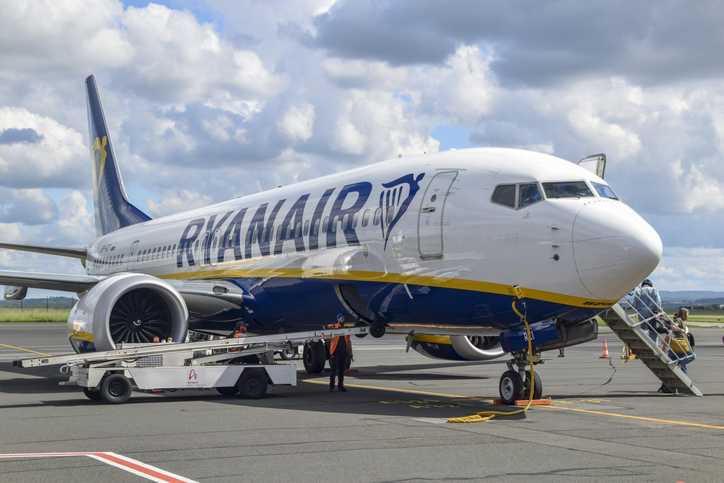Ryanair's Profits Drop Amid Lower Fares and Boeing Delays: A Closer Look at the Airline’s Strategy and Challenges
Ryanair, Europe’s leading low-cost carrier, has announced a substantial dip in profits, with earnings dropping nearly 20% over a six-month period. The decline comes as the airline navigates a complex landscape marked by reduced peak-season fares, increased operational expenses, and delivery delays from Boeing. This combination of factors has disrupted Ryanair’s aggressive expansion plans and placed pressure on its bottom line, raising questions about the company’s strategic response and future growth prospects.
Summer Strategy: Full Flights, Lower Fares
To sustain passenger numbers and ensure full flights during the competitive summer season, Ryanair opted to lower fares by an average of 7%. This move, while effective in boosting the number of travelers by 9% year-over-year, proved costly. Although the airline managed to attract a record 115 million passengers between April and September, the drop in ticket prices significantly impacted overall profitability. For the period, Ryanair reported €1.8 billion (£1.5 billion) in profits, an 18% decrease compared to the same period in 2023.
CEO Michael O’Leary explained that the strategy was a response to economic headwinds, including heightened interest rates and rising living costs, which have put pressure on consumer spending. While the airline succeeded in maintaining a high load factor, the financial implications of these reduced fares were significant.
Boeing’s Role in Ryanair’s Operational Challenges
One of the most pressing issues contributing to Ryanair’s financial performance has been delays in aircraft deliveries from Boeing. These delays have left Ryanair struggling with capacity and efficiency. The airline had anticipated a steady inflow of new 737-Max-10 aircraft to support its growing operations, but only 172 of the 300 jets ordered are expected to arrive on schedule. O’Leary highlighted that recent strikes at Boeing exacerbated the situation, noting, “We now expect our remaining nine Q3 deliveries to slip into Q4.”
The delay in deliveries has forced Ryanair to adapt its operations, leading to what O’Leary described as being “over-scheduled, over-crewed, and over-costed.” While Boeing is set to provide compensation for the late deliveries, O’Leary made it clear that this would not fully offset the potential revenue loss from the more than five million passengers the airline could have accommodated if it had received the aircraft on time.
Adjusted Growth Targets Amid Supply Chain Setbacks
Due to the challenges with Boeing and operational constraints, Ryanair has revised its growth projections. The airline reduced its annual traffic target from 215 million to 210 million passengers, acknowledging that pushing forward with the original plan would risk repeating past issues related to scheduling and staffing inefficiencies. O’Leary emphasized that recalibrating expectations was necessary to avoid the pitfalls of being “over-scheduled, over-crewed, and over-costed” and to safeguard the company’s future stability.
The Impact of UK Policy on Ryanair’s Plans
Adding to the airline’s challenges are policy shifts in the UK that could hinder future growth. Ryanair announced plans to cut its capacity in the UK by as much as 10% following an increase in air passenger duty included in the recent budget by Rachel Reeves. This policy will raise the cost for short-haul international departures from £13 to £15 per passenger. O’Leary voiced strong criticism of the move, arguing that the tax hike will negatively impact tourism and economic growth, discouraging air travel to and from the UK.
Related: Boeing in Crisis: CEO Warns of Fundamental Changes Amid $6.2 Billion Losses
Rising Operational Costs and Strategic Adjustments
The operational landscape for Ryanair has become more complex, with rising fuel prices, staff wages, and other operational costs putting further strain on its financials. While the airline has been known for its rigorous cost-cutting measures, the current environment has forced a reevaluation of certain strategies. O’Leary suggested that the increase in operational expenses was partly a result of over-preparation, due to expectations of higher capacity that Boeing’s delays disrupted.
To counter these cost pressures, Ryanair is betting on fare increases during the winter months, which could help stabilize revenue. However, O’Leary remains cautious, indicating that while talks with Boeing continue to expedite aircraft deliveries ahead of the peak 2025 summer season, the risk of further delays persists.
Market Reactions and Investor Sentiment
The announcement of Ryanair’s financial results and its adjusted forecasts have been met with a mixed response in the financial markets. In early trading, Ryanair’s shares fell by 2.5%, reflecting investor concerns over the airline’s ability to manage its growth amid supply chain issues and increased costs. The drop signals that stakeholders remain wary of the airline’s current trajectory and its dependency on external factors, particularly Boeing’s production capabilities.
Related: Boeing workers reject latest contract including a 35% pay rise
Looking to the Future: Ryanair’s Path Forward
Despite the current challenges, Ryanair remains committed to growth and maintaining its position as Europe’s leading budget airline. The revised traffic targets and operational changes indicate a willingness to adapt to current market conditions and mitigate the risk of overstretching resources. The company’s focus on strategic fare increases, more efficient scheduling, and continued negotiation with Boeing are central to its efforts to recover and thrive.
O’Leary’s cautious optimism about the future is tempered by the reality of ongoing supply chain and economic uncertainties. The airline’s capacity to balance its ambitious growth plans with sustainable profitability will be tested in the coming months as it navigates this turbulent period.
In closing, while Ryanair’s strategic pivots and recalibrated goals demonstrate an agile response to external challenges, the airline’s path to sustained profitability will rely heavily on resolving supply chain issues and weathering economic headwinds. Continued dialogue with Boeing and responsive strategies will be key as Ryanair positions itself for a potentially brighter summer season in 2025.












